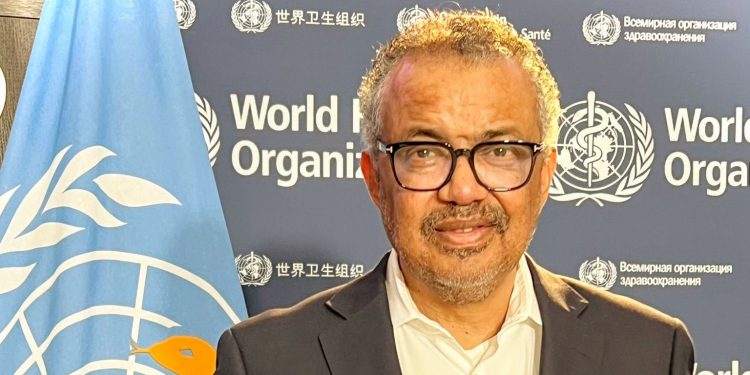As the war in Gaza persist, the World Health Organization has raised alarm that more than 12,000 people still need medical evacuation while lamented the pace of evacuations which it said remains excruciatingly slow.
According to the statement released by the WHO Director-General, Dr Tedro Ghebreyesus on Thursday revealed that only 5383 patients have been evacuated with support from the Agency since October 2023, of which only 436 since the Rafah crossing was closed. The DG who has repeatedly lamented the slow pace of urgent medical evacuation for life-saving treatment said it would take 5-10 years to evacuate these critically ill patients, including thousands of children as their conditions get worse and some could die.
The DG who has repeatedly lamented the slow pace of urgent medical evacuation for life-saving treatment said it would take 5-10 years to evacuate these critically ill patients, including thousands of children as their conditions get worse and some could die.
He said, “On 31 December 2024, 55 patients and 72 companions were evacuated to the UAE. We thank the United Arab Emirates government for their continued support, they have helped with the medical evacuation of over 1200 patients so far.
“We also thank Egypt, Qatar, Türkiye, Algeria, Italy, Romania, Spain, Ireland, Belgium, France, Switzerland, Tunisia, Oman, Jordan and the USA for their support with medical evacuations and health care”, Dr Ghebreyesus added. The DG urged Israel to increase the approval rate for medical evacuations, including no denials of child patients, expedite process of approvals for medical evacuations and allow all possible corridors and border crossings to be used for safe medical evacuations.
The DG urged Israel to increase the approval rate for medical evacuations, including no denials of child patients, expedite process of approvals for medical evacuations and allow all possible corridors and border crossings to be used for safe medical evacuations.
“We also call on all countries to help by receiving patients and offering specialized health care to prevent more suffering and deaths”, the WHO Boss appealed.
The killings have pushed more than 60,000 recorded, the death toll from Gaza’s health ministry, which does not give details of civilian and militant deaths. In the occupied Palestinian territory, where a 16-year blockade has left the Gaza Strip’s health system severely under-resourced, escalating hostilities with Israel that began on 7 October 2023 are compounding an already dire situation.
In the occupied Palestinian territory, where a 16-year blockade has left the Gaza Strip’s health system severely under-resourced, escalating hostilities with Israel that began on 7 October 2023 are compounding an already dire situation.
Power outages and shortages of medicines and health supplies in Gaza Strip hospitals are hindering delivery of life-saving medical care. Attacks on health care have been recorded by WHO, resulting in deaths and injuries of health workers and affecting health facilities and ambulances.
As the situation evolves, there is an urgent need to establish a humanitarian corridor for unimpeded, life-saving patient referrals and movement of humanitarian personnel and essential health supplies.
Gaza: Over 12,000 patients still need medical evacuation – WHO raises alarm
Please login to join discussion














